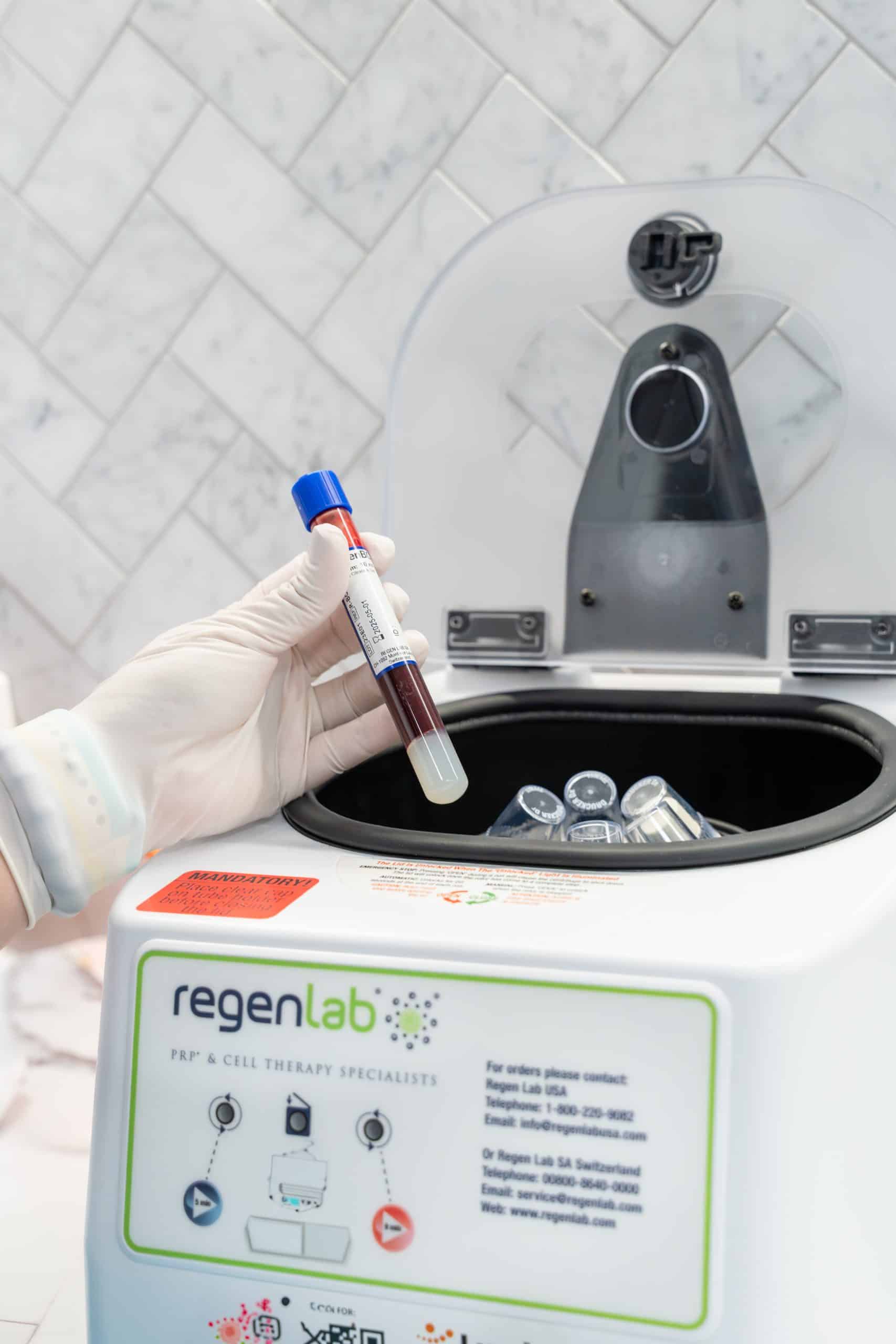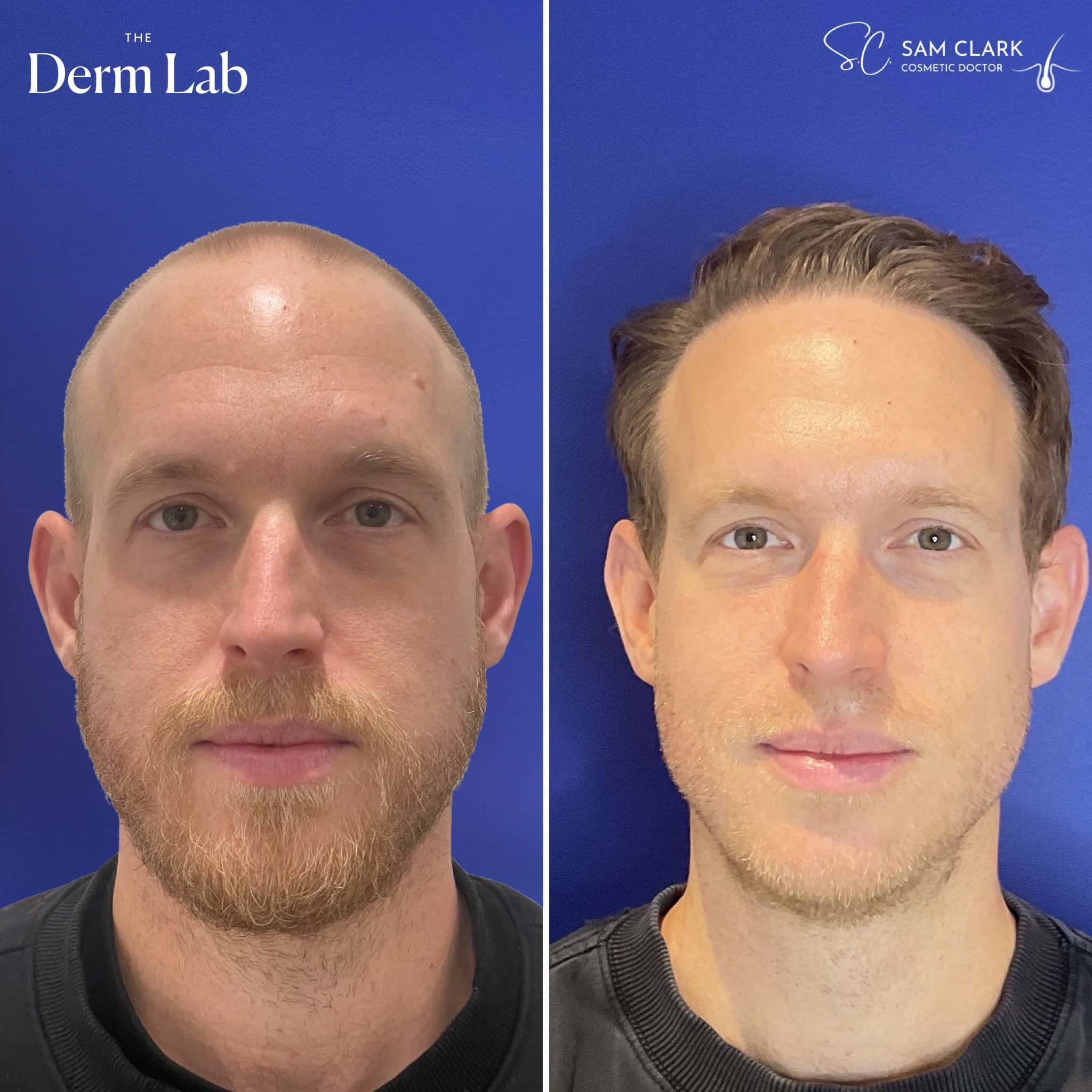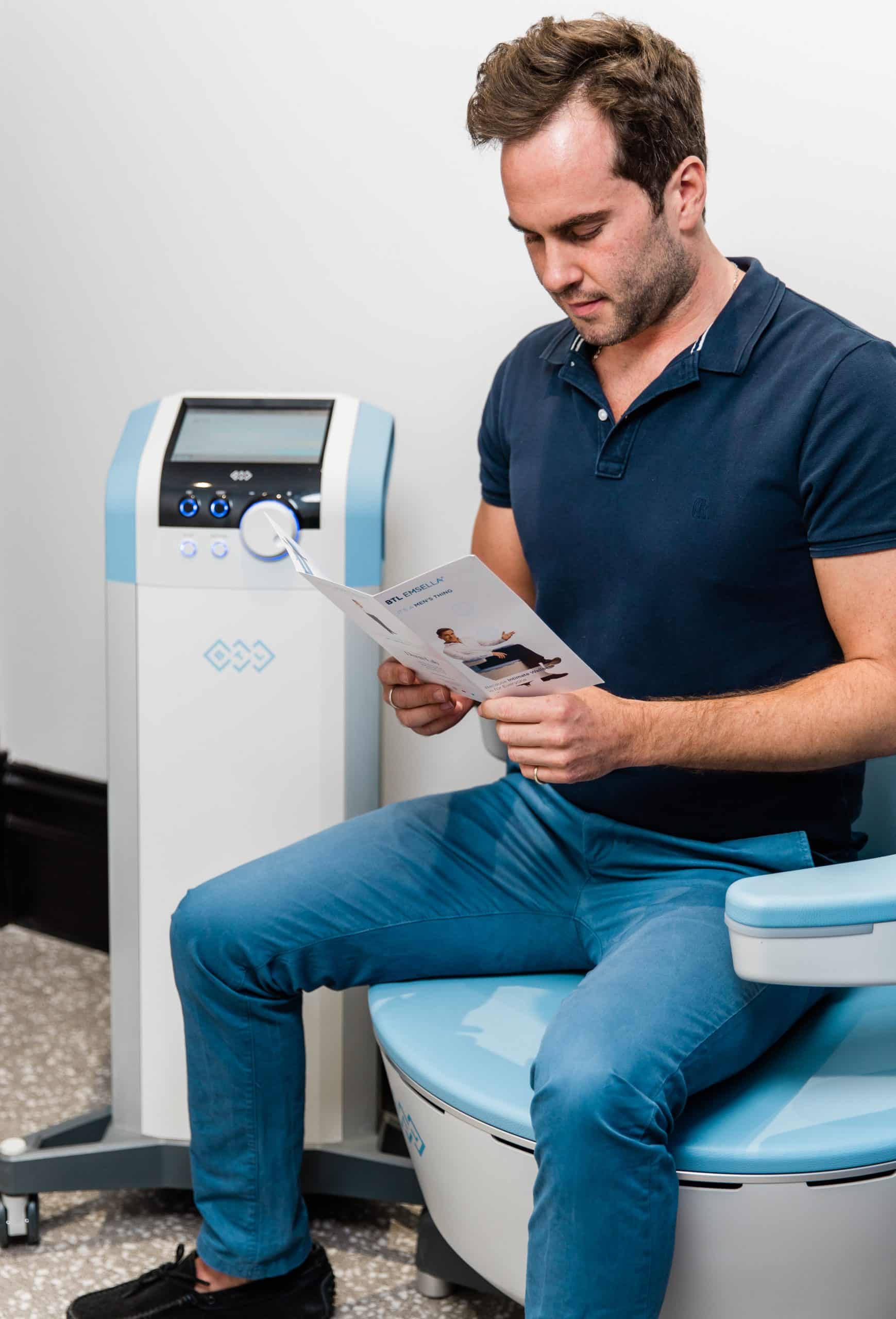Hair loss is one of the most personal and frustrating concerns we treat at The Derm Lab — and luckily, modern aesthetic medicine now offers two highly effective, clinically proven options:
👉 PRP (Platelet-Rich Plasma) and
👉 FUE Hair Transplant Surgery.
But how do you know which one is right for you?
This guide breaks down the benefits, differences, and candidacy for each — so you can take the next step with confidence.
🩸 What Is PRP?
PRP (Platelet-Rich Plasma) is a non-surgical hair restoration treatment where a sample of your own blood is spun in a centrifuge to isolate growth factors. These are then injected directly into areas of thinning or shedding hair.
🔍 Key Benefits:
- Stimulates dormant hair follicles
- Improves density and hair health
- Natural, drug-free solution
- Suitable for men and women
- No downtime
At The Derm Lab, we use premium RegenLab kits (Swiss-made) for maximum quality, and every session includes LED light therapy to further enhance results. We typically recommend a 6-month treatment course, with sessions monthly or bi-monthly depending on your schedule. We often combine PRP injections with scripted medicate (if required).
🧑⚕️ What Is a Hair Transplant?
A hair transplant is a surgical procedure that relocates healthy hair follicles from a donor area (typically the back or sides of the scalp) to areas experiencing significant thinning or balding.
At The Derm Lab, we perform the FUE (Follicular Unit Extraction) method:
- Minimally invasive
- No stitches or linear scarring
- Faster healing than traditional methods
- Delivers permanent results when performed correctly
FUE is ideal for those seeking long-term hair restoration in visibly depleted areas such as the hairline, crown, or temples.
⚖️ PRP vs Hair Transplant: What’s the Difference?
| Feature | PRP | Hair Transplant (FUE) |
|---|---|---|
| Invasiveness | Non-surgical | Surgical |
| Downtime | None | 7–10 days |
| Results Timeline | 3–6 months | 9–12 months |
| Longevity | Ongoing maintenance | Permanent |
| Ideal For | Early thinning | Advanced loss / bald patches |
| Cost | Lower upfront | Higher upfront, long-term value |
👤 Who Is PRP Best For?
PRP is ideal if you:
- Are noticing early signs of thinning or excessive shedding
- Still have active follicles in affected areas
- Prefer a natural, non-surgical solution
- Want to slow genetic hair loss progression
- Are looking to enhance the results of a transplant or prepare the scalp beforehand
👤 Who Is Hair Transplant Best For?
FUE hair transplant may be better suited if you:
- Have clear, established bald patches or recession
- Want a permanent solution with high density
- Have tried PRP or medications without significant improvement
- Are willing to undergo a minor surgical procedure for lasting results
Many patients opt for PRP after a transplant to improve follicle retention and optimise healing.
🤝 Not Sure Which Is Right for You?
Hair loss is never one-size-fits-all. That’s why every treatment plan at The Derm Lab begins with a comprehensive consultation and scalp assessment.
Our team will help determine:
- Your current stage of hair loss (e.g. Norwood scale)
- The viability of donor follicles
- Whether FUE, PRP, or a combination is the most effective approach for you
❓ Frequently Asked Questions
How many PRP sessions are needed for hair loss?
We typically recommend a series of 6 monthly PRP treatments for best results, followed by maintenance every 3–6 months. However, treatment plans can be customised based on your individual needs and hair goals.
Is PRP or hair transplant better for thinning hair?
PRP is best for early-stage thinning and to strengthen existing hair follicles. A hair transplant is more suitable for advanced hair loss or visible bald patches where follicles are no longer active.
Is a hair transplant permanent?
Yes — FUE hair transplants involve moving permanent, DHT-resistant follicles from the back of the scalp to areas experiencing loss. These grafts will typically continue to grow for life.
Can I combine PRP with a hair transplant?
Absolutely. In fact, we often recommend PRP to support recovery and improve graft survival after a hair transplant. It also helps stimulate surrounding follicles for a fuller result.
What’s the downtime for PRP vs. a hair transplant?
- PRP: Minimal to no downtime — some clients return to work the same day.
- Hair transplant: 5–7 days of social downtime while the scalp heals and crusts form.
📍 Book a Hair Restoration Consultation in Melbourne
Whether you’re just starting to notice thinning or exploring your options after years of hair loss, we’re here to help.
👉 Book your consultation at The Derm Lab and let’s create your personalised hair restoration plan.




